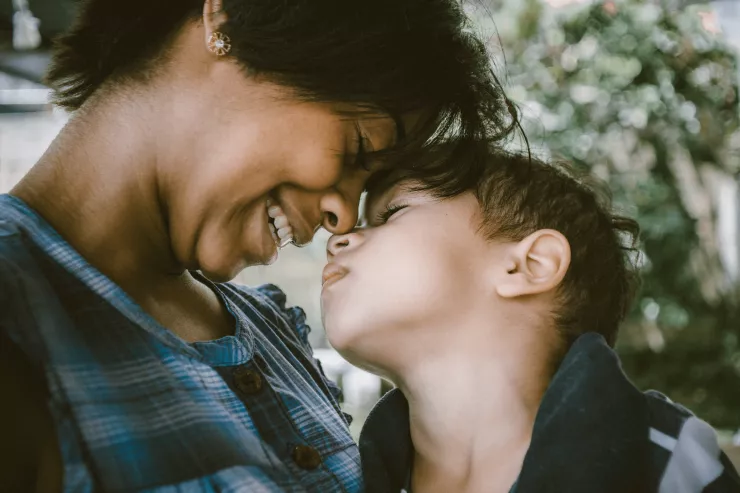What is parallel parenting?
Do you find even the most basic conversations with your ex-partner about childcare arrangements a nightmare? Do you have divorce anxiety every time you need to raise a topic concerning your children with your ex? If so, you should consider parallel parenting.
What is parallel parenting?
Parallel parenting is a unique arrangement that can be consciously formed or simply fallen into by circumstance. Parallel parenting is when two parents, who are unable to communicate with each other in a respectful way, co-parent effectively by disengaging from one another, only having very formal or limited contact.
To thrive, children need a relationship with both parents, even when their parent’s relationship ends. If there is still anger, grief, hurt or resentment, then the regular communication that parenting needs can become toxic, negative, and just too hard to do! The kids do not need to see you yelling, shouting, or having a door slammed in your face. As a parallel parent, the interaction between you and your ex is minimal but it allows you to choose for yourself how to parent when the kids are with you.
Does parallel parenting work?
Yes, there have been numerous success stories. As time passes wounds can heal, resentment can fade, and communication can become focused on your kids. Not to mention the benefits for your own mental health.
Co-parenting vs parallel parenting
Co-parenting is a form of parenting that involves joint problem-solving with your children's best interests at the heart of every parenting discussion. It is based on the common goal of raising your children to the best of your ability putting aside personal grievances and emotions. It is so important to be clear that this style of post-separation parenting can only be achieved if both are committed to this amicable aim.
Often it is only one parent that can get past the hurt and focus on the children. If you are recently out of a relationship with an emotionally abusive ex, the parallel parent path is most likely a healthier choice than co-parenting. Don't think parallel parenting is inferior because it can absolutely be the right choice.
What are the benefits of parallel parenting?
If you are unable to co-parent because of either your ex's unwillingness to communicate without hostility or you simply can no longer be in the same room; one of the greatest benefits of parallel parenting is that you can still both maintain a meaningful relationship with your children and shield them from as much conflict as possible.
This strategy is unique but effective when tension and emotions run high. It is about neutralising the battlefield.
How to create a parallel parenting plan in 5 steps
Step 1: Determine your agreed plan of where the kids will be between your households.
Set up a diary that clearly shows where they will be sleeping for their routine of school and determine holidays and celebrations. Our co-parenting app can help with this.
Step 2: Determine the boundaries of start and finish times and how they will be dropped off and collected.
Be specific as to times to avoid confusion.
Step 3: Establish the location of drop off and collections.
To minimise communication at drop-offs and collections, choose neutral places or places where the children feel comfortable to switch cars. Remember they will have clothing and possessions to manage as well.
Step 4: Have a plan for cancellations or changes.
These will happen for all sorts of reasons, and you should both be clear about the way you should address this. Also, be very clear if the cancelled time can be made up at a later date and when.
Step 5: Have an agreed way to handle any disputes that may arise.
No plan is 100% perfect and there is no foolproof step-by-step guide for how to parallel parent. So, if you find yourself being drawn into a hostile conversation, shut it down and seek professional help. We offer one-hour Separating with Children Service to help resolve any conflict.
FAQs
Are there any other forms of parenting, besides co-parenting and parallel parenting?
Yes, besides co-parenting and parallel parenting, there are several other forms of parenting that individuals may adopt based on their unique circumstances and needs. Some examples include solo parenting, shared parenting, blended parenting, and free-range parenting.
What happens when parallel parenting doesn’t work? What do I do?
When parallel parenting doesn't work, and the co-parents can’t effectively communicate or cooperate, it can create challenges and conflicts that impact the well-being of the children involved. Couples should seek specialist help to navigate this.
Which parenting style is most effective?
The effectiveness of a parenting style is subjective and depends on many factors, including the child's temperament, age, and specific family dynamics.
Read More

If you’re going through separation, hopefully you can learn from our mistakes by applying these five golden rules.

Here’s some of their best advice on adjusting to your new role as a co-parent.

Plan how and when to tell your children. Make sure your ex is aware it is happening, and they don’t find out from one of the children.

Co-parenting advice
Speak to a Co-parenting Specialist for help with all aspects of separated parenting.
Book a free 15-minute consultationYour guide to a kinder divorce
What if divorce didn’t have to be a battle?
In amicable divorce, Kate Daly offers compassionate, practical guidance to help you separate in a kinder, better way. Whether you’re just beginning, working through the practicalities or adjusting to co-parenting, this book meets you exactly where you are - and helps you move forward with confidence.
Pre-order on Amazon today
-1.webp)





Comments (4)
why does no one care today parallel parents get a bad rep !
what is parallel parenting with a narcissist mean for my kids. how can I do parallel.parenting ?!
I've tried this but what happens when parallel parenting doesn't work?
is there a parallels parent organization I can talk to plz